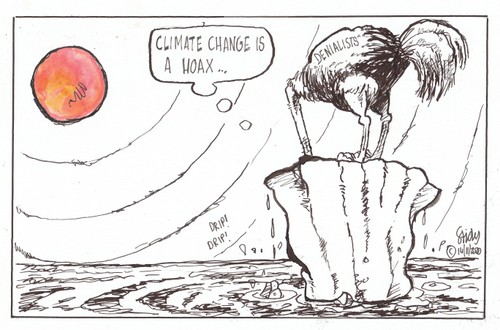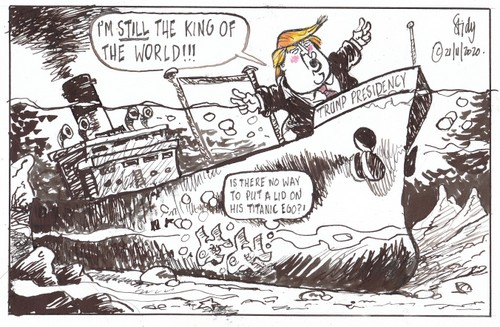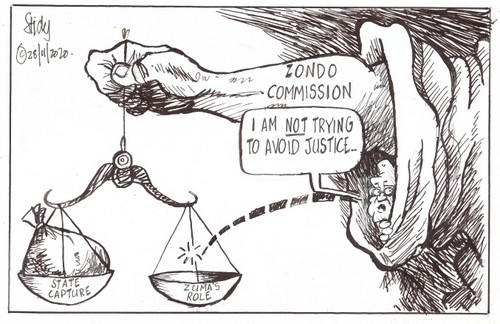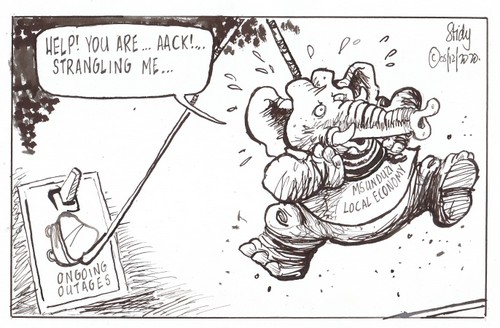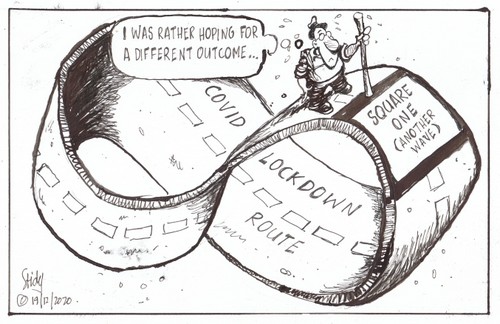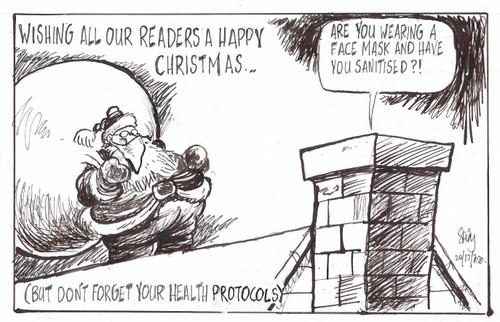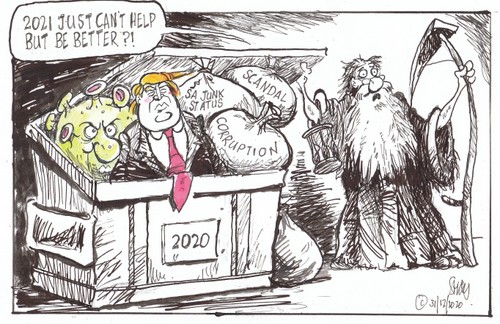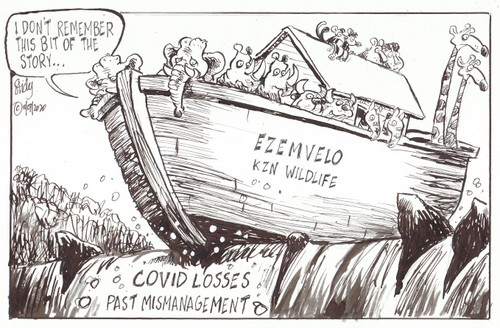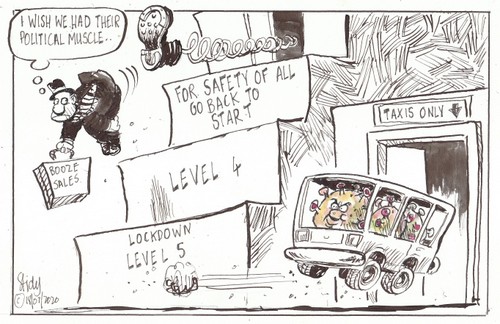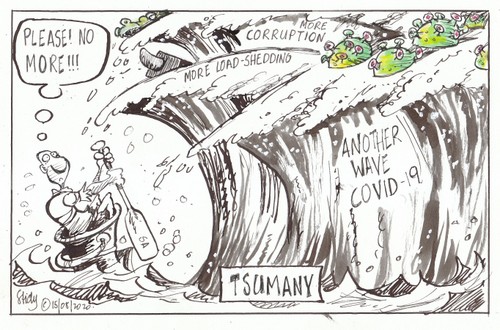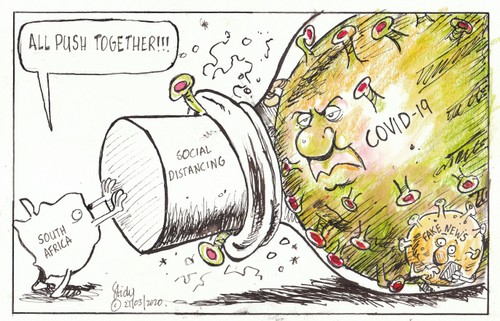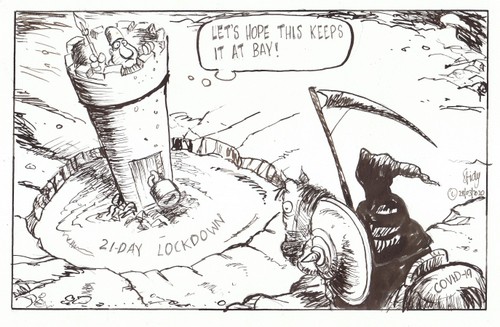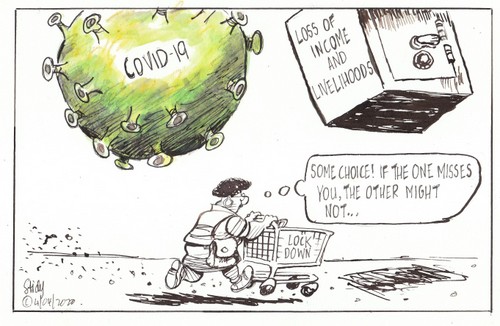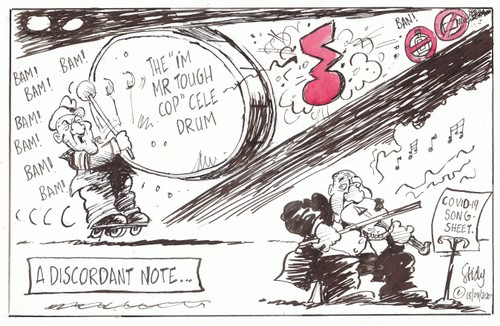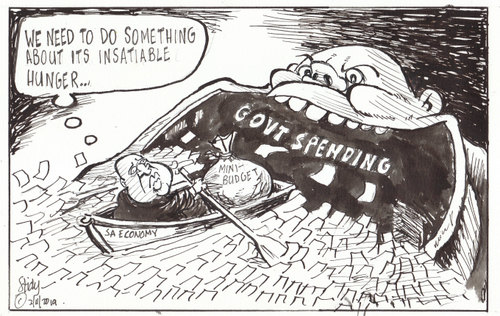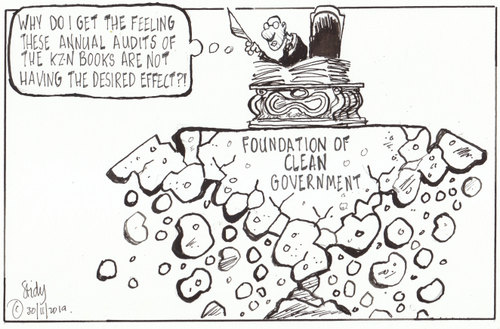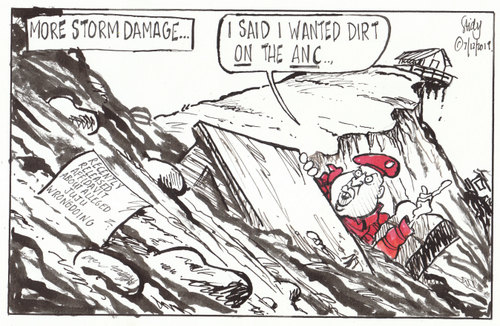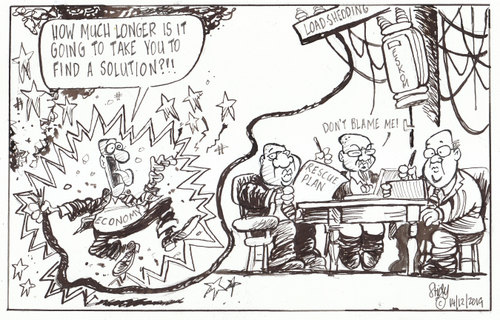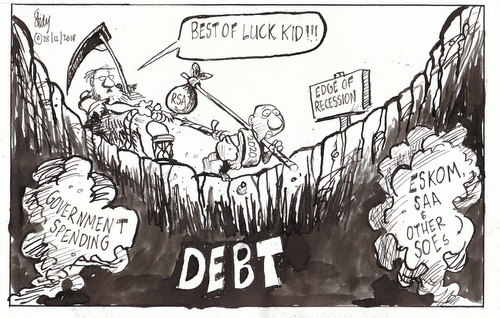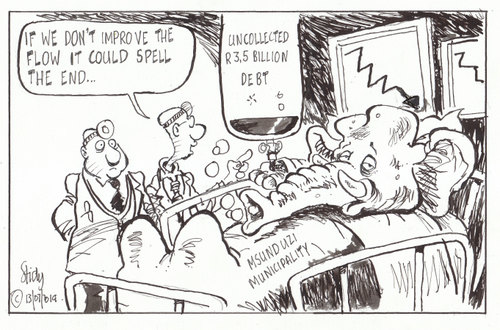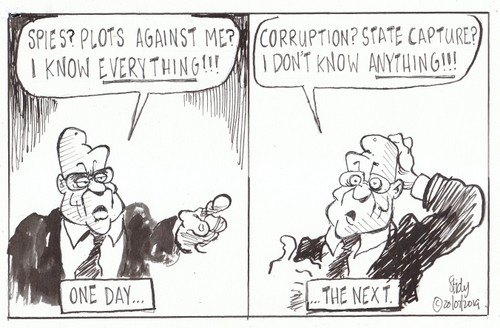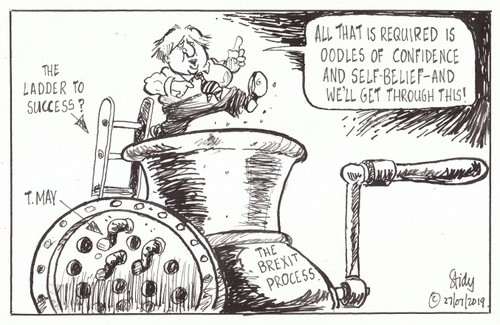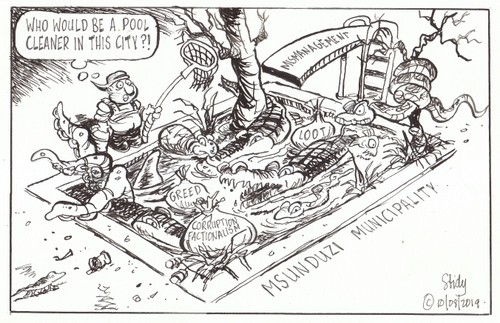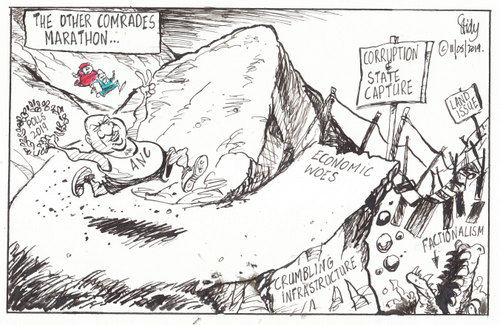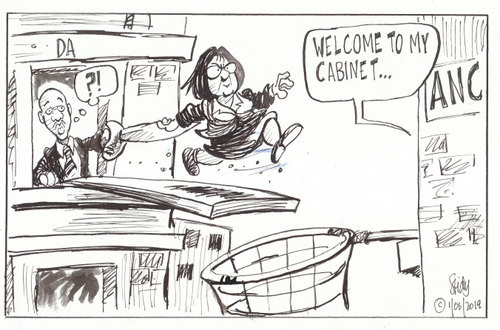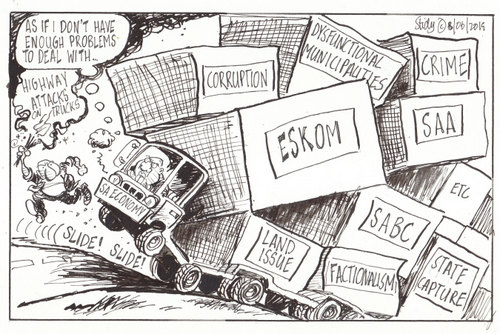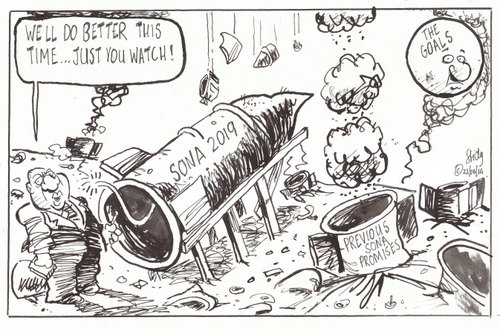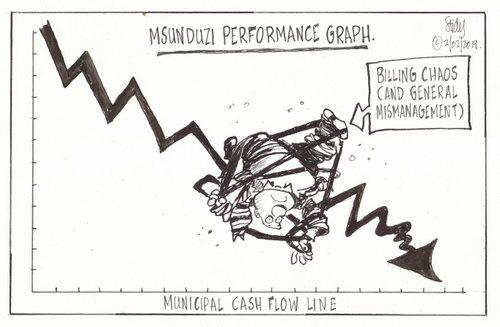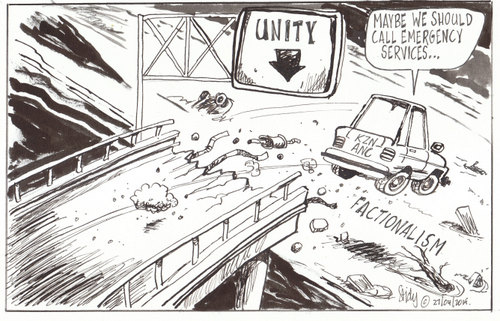NOTE: I wrote this piece shortly after I officially retired from the Witness newspaper but for some reason did not post it at the time. Since many of the concerns I raised remain as relevant now as they did back then and with the Covid-19 pandemic wreaking further havoc on parts of the print media, I decided it was still worth airing...
When I first joined the now-defunct SCOPE Magazine back in 1984 the print media was still in a state of rude good health, with full coffers and an ability to attract the brightest and the best, as well as providing a ready home for mavericks, misfits and nonconformists like myself. There seemed to be a lot more space for individual opportunism too.
Even when I got appointed to The Witness in February 1990, as their first-ever full-time political cartoonist, the industry was enjoying something of late Indian summer. With the final breaching of the apartheid wall and political change in the air, it was an exciting time to be a journalist and – again by association – a political cartoonist.
For a small, independent, provincial newspaper, the Witness, to my mind, boxed way above its weight and did an excellent job telling its readers what was happening on their patch. In fact, the newsroom was so stuffed full with reporters and specialist writers that, initially, there was no place to put a desk for me and I had to be content with a cardboard box on the floor – to which some wag glued another, much smaller, box and wrote on it:“Stidy’s Branch Office”. I decided to use this to my advantage and persuaded the editor to let me work from home.
Since then there has been a major tectonic shift. Faced with competition from the new technologies and declining circulation, newspaper budgets have been cut back to the bone, staff numbers slashed, the content has shrunk and newsrooms are now but a pale shadow of their former bustling selves. A lot of the old spirit has vanished with it; the atmosphere has become more muted and factory-like while the exodus of experienced journalists means that far less shoe leather is now expended on proper investigations.
As a result of all this, the law of unintended consequences has come into play – the cost-cutting measures have led to smaller newspapers and a more superficial content which, in turn, has caused the number of readers and advertisers to drop still further.
Looking back on it all I am just thankful that my career in cartooning happened before the rot set in too deeply and that I was offered this unique vantage point from which to view some of the major events of our recent past – the collapse of the old Soviet Union, the demise of Apartheid and the birth of the New South Africa, the recall of Thabo Mbeki and his replacement by Jacob Zuma (with all the attendant scandals) and, most sad of all, the passing of Nelson Mandela. Hopefully, my cartoons provided some sort of pictorial and historical guide to the period.
I now realise how lucky I was to have had the privilege to serve under editors of the calibre of Richard Steyn and John Conyngham, neither of whom tried to place any sort of restriction or requirement on what I drew. I am not sure how much longer that sort of artistic and editorial freedom is likely to continue.
Indeed, with continued declining circulation and more and more cutbacks, I suspect I am going to be the only full-time political cartoonist the Witness ever employed. As someone who believes in the continuing importance of visual satire, I find that sad. What worries me still further is that, in their weakened state, newspapers will no longer be able to properly fulfil their important watchdog role, giving the Government and, by extension, the municipalities yet more licence to do as they like.
I am still naïve enough to believe that a flourishing, diverse, credible, media is essential to a functioning democracy. Unfortunately, newspapers, in their current form, seem to be in a death spiral – and there doesn’t appear to be any any magic wand to save them.
FOOTNOTE:
In my almost thirty-years at The Witness, I have drawn literally thousands and thousands of cartoons. Here is a very arbitrary selection, showing some of the high but mostly the low points in our recent history…

This cartoon – depicting the collapse of the old Soviet Union – was one of the first I did for the Witness. It is still a favourite of mine. 
The negotiations to end Apartheid-ruled South Africa begin… 
The death of Apartheid, mourned by few… 
Winnie Mandela appears before the Truth and Reconciliation Committee. She proves most uncooperative… 
Two South African icons – Bishop Desmond Tutu and Nelson Mandela. 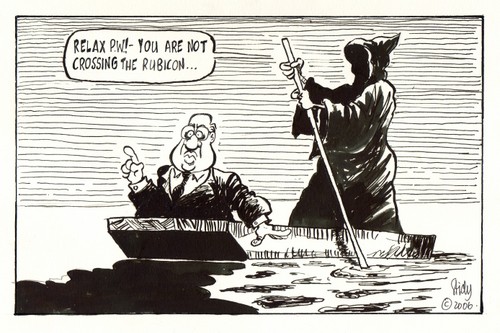
Former SA President PW Botha – the “Groot Krokodil”- dies, unrepentant to the bitter end.. 
As true today as it was when I drew it. 
President Thabo Mbeki ponders his achievements. 
South African “Quiet Diplomacy” towards Zimbabwe at work. 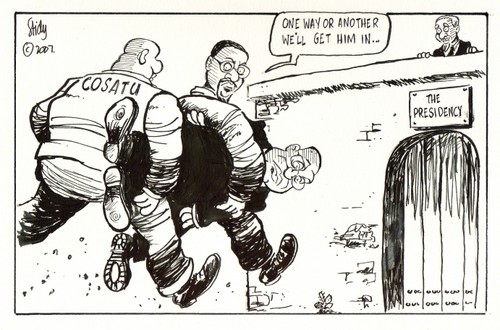
Cosatu boss Zwelinzima Vavi throws his weight behind the bid to oust President Thabo Mbeki from office. He later undergoes a change of heart as to the worthiness of Mbeki’s successor, Jacob Zuma. 
The Schabir Shaik trial in Durban proves the fraudulent and corrupt relationship between the Durban-based businessman and South African leader, Jacob Zuma. Shaik is sent to jail but is later released on very dubious “health” grounds. 
President Thabo Mbeki finds his State of the Nation address being overshadowed by a much larger issue – his own survival. 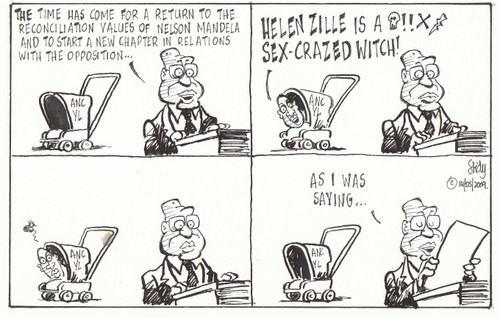
Drawn back in the days when a newly elected Jacob Zuma was still trying to act presidential. He very soon gave up the pretense. Julius “Juju” Malema’s behaviour has remained unchanged… 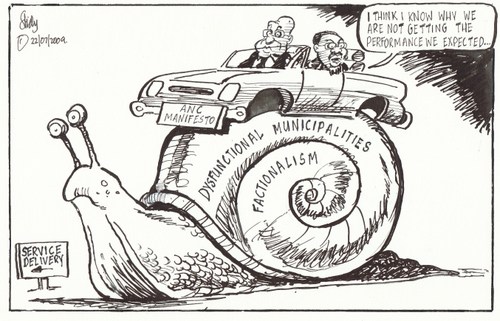
A cartoon depicting the huge gap between electoral promises and actual delivery.. 
Ex-President Thabo Mbeki’s Aids denialism costs South Africa dearly. 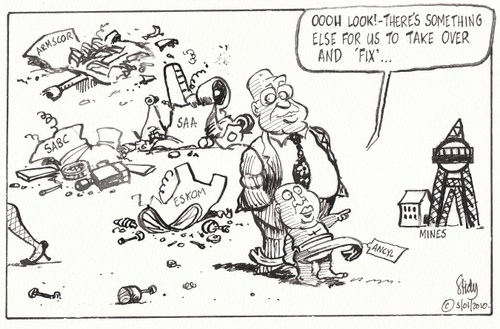
So far Juju’s high hopes for the mines have not been realised. The position of South Africa’s parastatals has, meanwhile, got a whole lot worse. 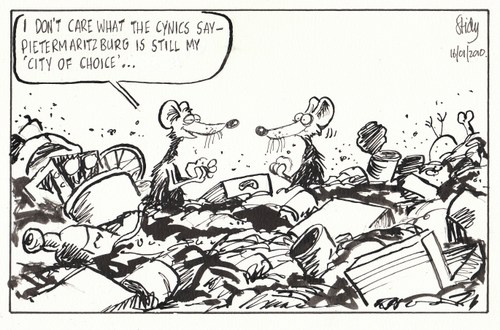
Pmb’s refuse problem also got worse… 
Former Health Minister, Manto Tshabala-Msimang dies. In her life she became an object of ridicule because of her recommended AIDS cure. 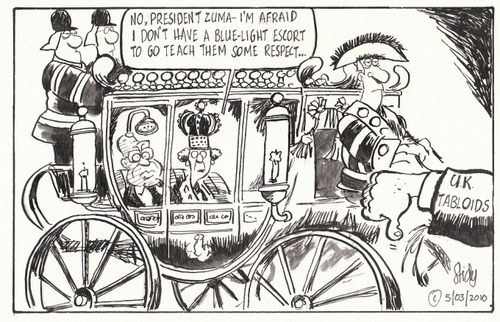
On a state visit to Britain, President Jacob Zuma receives a hostile reception from the British tabloid press. He is not amused… 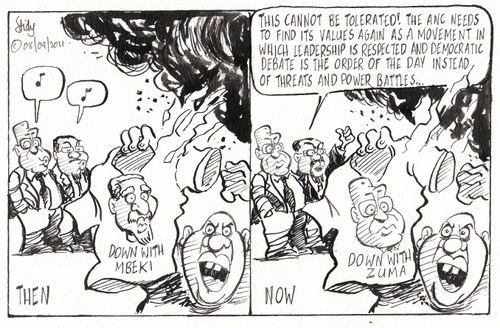
What goes around, comes around – and President Zuma is, once again, not amused. 
Julius Malema is expelled from the ANC by the man he helped bring to power. 
One of the many, many, many scandals that dogged Jacob Zuma’s term in office. 
The death of an icon. The whole world mourns. 
Another cartoon which shows how little some things have changed. 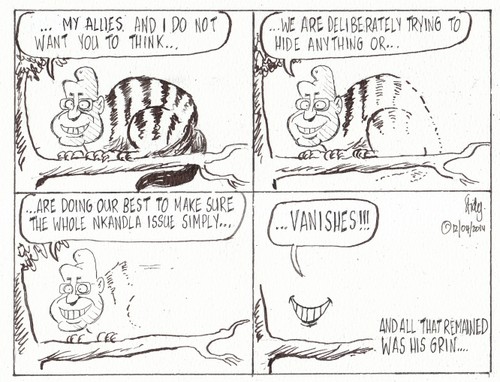
Dogged by one scandal after another, Jacob Zuma remains a master of evasion. 
Once his staunchest ally, Juju becomes President Jacob Zuma’s staunchest critic.

